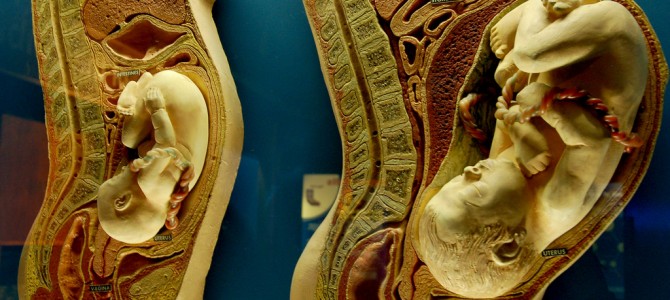Reaching for understanding in the ongoing abortion debates, more women are telling their stories. In “A Peaceful Death,” Phoebe Day Danziger tells of her son’s devastating diagnosis at the anatomy ultrasound and of her and her husband’s decision to abort as the more compassionate choice for him.
Her story is difficult to read. She writes of regret, sorrow, and silver-lining joy—she now has a second daughter. She also writes of a certain kind of wounding surprise, one that I find repeats in these stories [emphasis mine]:
My story is not unique—I am part of a group of 20-odd other mothers who have also terminated pregnancies for medical reasons, and many of us have shared remarkably similar reflections and perspectives—and yet there is not an easy language for situations like ours. These types of late-term abortions for medical reasons occupy an uneasy place in the mainstream dialogue about abortion. Opponents of abortion may argue that terminating my pregnancy violated our baby’s human rights and that if anything, we should have continued the pregnancy and opted for palliative care at birth. The more surprising and hurtful responses, however, have been from people like my staunchly pro-choice friend who told me that she was jarred by my use of the word son to describe our fetus, as though the moral basis for abortion depends on denying the fetus any semblance of humanity, no matter how close it is to the point of viability, no matter how the woman herself chooses to define her relationship to the fetus.
The moral basis for abortion does depend on “denying the fetus any semblance of humanity.” ‘A fetus is a clump of cells’ is the pretense that protects abortion advocates from having to confront the moral basis of this choice.
But of course, sometimes life hands us facts of gray. A woman recognizes the being inside her is a child. The essential pretense crumbles to dust.
Under these grey abortion stories, many ask for compassion for these women, implying or outright accusing pro-life advocates of lacking any. To recognize the loss of a life supposedly hurts the woman. But because we grieve for the lost life, we can also acknowledge her pain. We understand what she lost.
So too can the few pro-choice advocates who refuse to hide behind the essential pretense. Camille Paglia is the most famous. She describes abortion as “the extermination of the powerless by the powerful.” Another calls it “[a] life worth sacrificing.” Their position might sound horrid. In many ways it is, for they know exactly what they support. But they also know that the difference between an expelled fetus and the death of a son is whether the mother intended on carrying the pregnancy to term. Therefore, they can meet the women with the facts of grey in their sorrow.
To those who recognize the truth of life in the womb, Ariel Levy would not have needed to explain the “crucial” fact that her son was alive; Jessica Valenti might not have been surprised by despair; Danziger would not have to mollify her friend’s worldview when she needed comfort for her own heavy arms.
But those who cling to the pretense, who insist on calling their friend’s child a fetus, her pregnancy a miscarriage, they ask her to deny her loss to protect their own conscience. That callous reaction surprises because they are supposed to be the ones who care.









